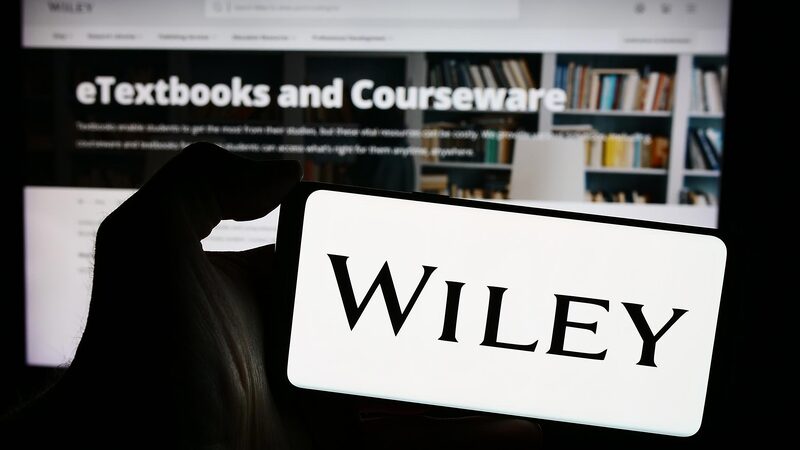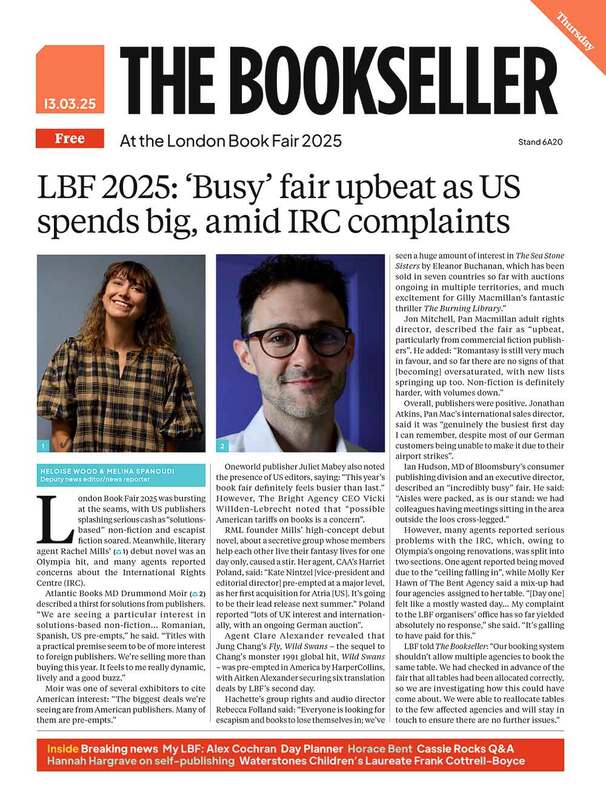You are viewing your 1 free article this month. Login to read more articles.
Trade figures relatively optimistic about future AI regulation, LBF hears
Trade figures appeared relatively optimistic about licensing and legal frameworks likely to come into effect to help regulate Artificial Intelligence (AI) during a discussion at London Book Fair yesterday (12th March).
In a panel "Copyright and AI: A Global Discussion of Machines, Humans and the Law", Dan Conway, c.e.o. of The Publishers Association, said he felt that the publishing industry had been listened to, with the Society of Authors’ c.e.o. Nicola Solomon also praising the way the trade came together to help the government understand the value of the UK’s creative industries and why they needed protecting.
In February the Lords Committee AI report called on the government to take urgent action against copyrighted material being used to train Large Language Models (LLMs). A week later the government issued its response to the Regulation of AI White Paper consultation, which said it will formally establish activities to support regulator capabilities and co-ordination “in the coming months” including a new steering committee with government and regulator representatives.
Conway admitted that recently there had been “a bit of policy paralysis”, however. “It’s not what we need. These Large Language Models have all the content. They’ve already got it. The horse has bolted in that sense. We know it’s in these machines and we do need some sort of high-level policy leadership to establish principles for licensing so that ... those companies and those rights-holders that do want to license can get on and do it and those that don’t, don’t have to."
However, he stressed, he didn’t want to “miss out on the positives”, highlighting that “publishing has innovated across all parts of the value chain with AI technology, and continues to do so, with some really exciting stuff happening, perhaps especially in scientific publishing around AI plugins to certain big datasets that are going to be really exciting”.
“The industry will move with this change and will deliver ethical AI innovation,” he said. “The question here is that colossal copyright infringement that happened at the very early days of change ... what we’re trying to do, as a sector, is foster innovation in the right way, in an ethical way, to get the kind of products to market that are going to benefit the reader while also dealing with that massive Ground Zero moment where all of the information is taken in one go.”
Solomon said the government “is now realising it can’t regulate on its own” and will be looking towards the Europe and America. Also in February the Committee of Permanent Representatives in the European Union voted in favour of the EU Artificial Intelligence (AI) Act, which will get the final nod in the European Parliament today (13th March), paving the way for the rules to finally enter into force.
“What is good is that globally everybody is realising that regulation is necessary in some form”, Solomon said. “I suspect that the differences between us about where we land, are probably not that great” she said, but stressed: “We cannot wait for the legal case – we need answers now”.
Maria A Pallante, president and c.e.o. of Association of American Publishers (AAP), said the trade is in a strong position because it’s not asking “for an entire new legal regime”. “What we’re saying is that the copyright system is on our side, it protects authors and publishers,” she said. “There’s absolutely no public policy reason to give big tech a pass on paying for digital uses. Publishers pay authors for digital uses all the time. We’ve been doing it for 30 years.”





















